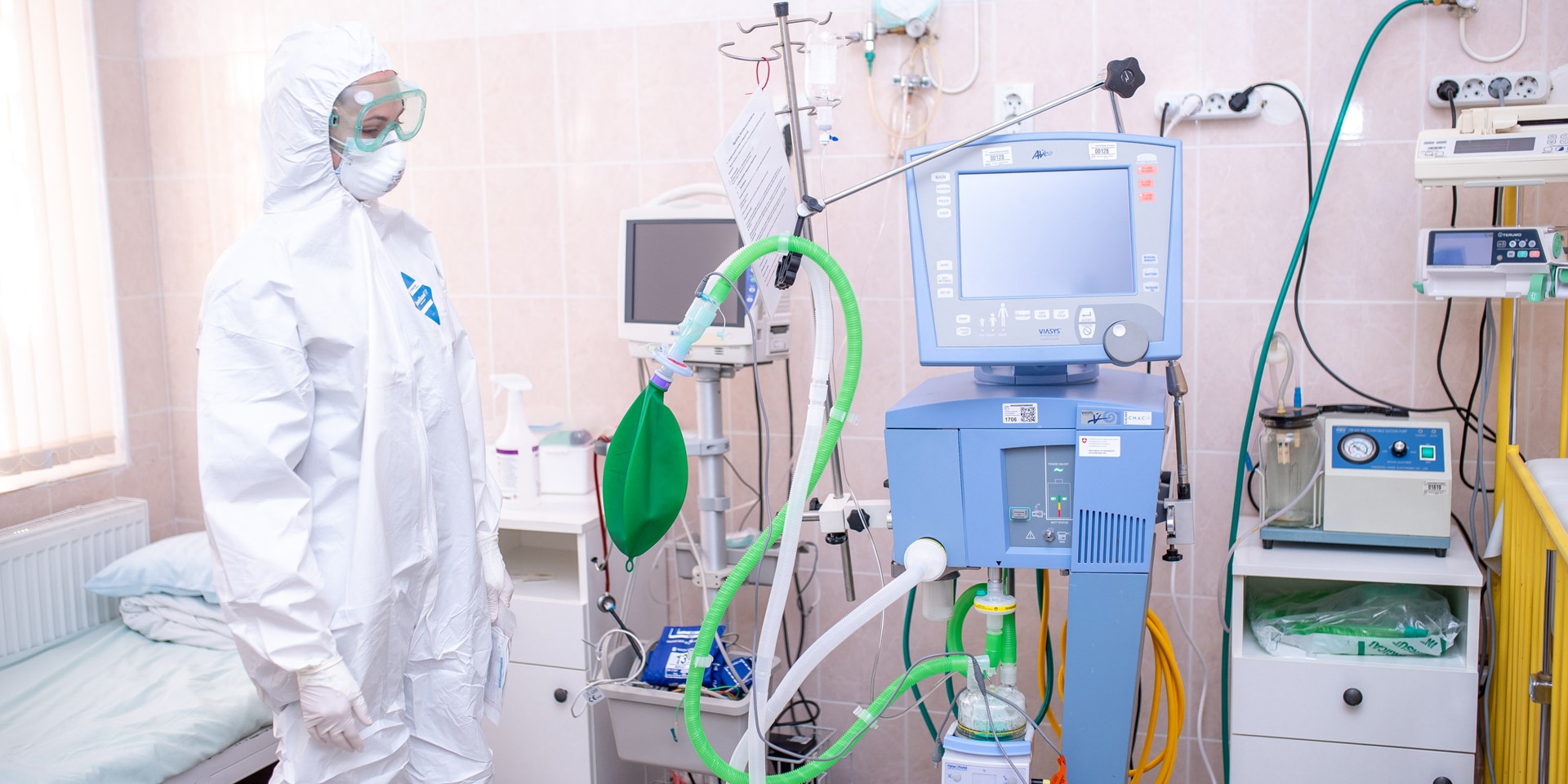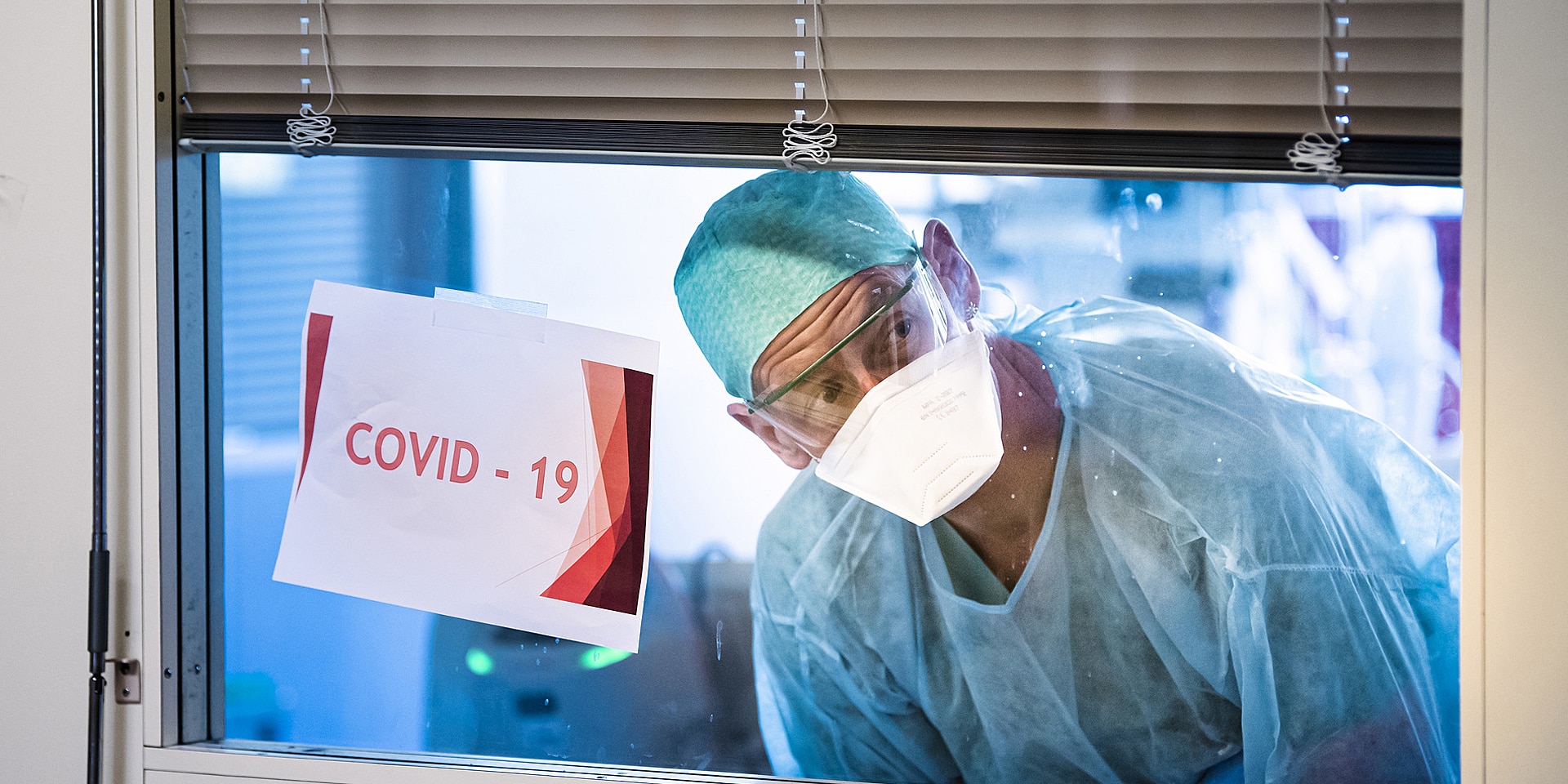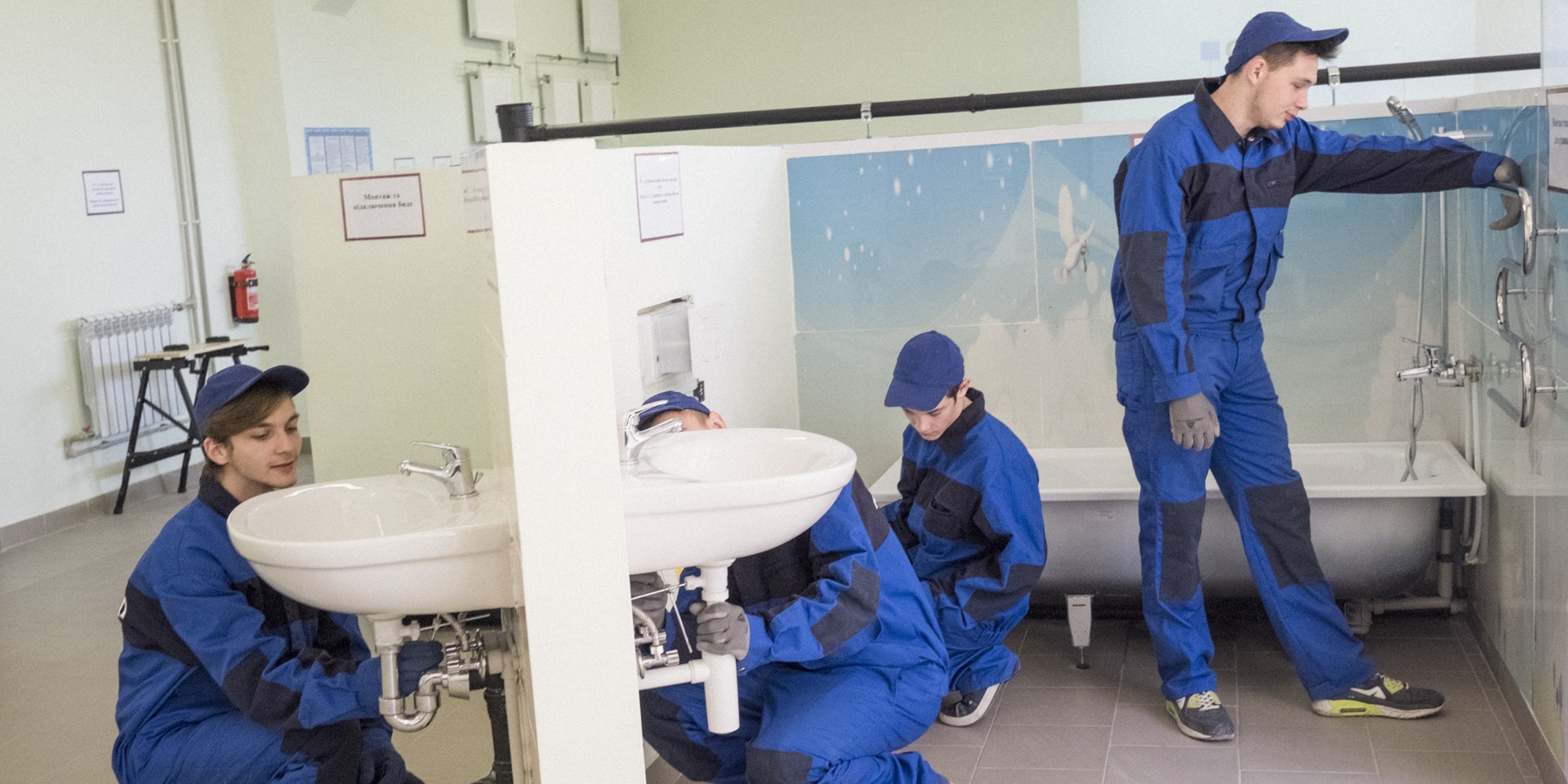Equitable access to diagnostics, treatments and vaccines: three pillars of a global response
Three pillars and many more actors in a global, solidarity-based response. These are the keywords of Switzerland's efforts to combat the COVID-19 pandemic. An approach shared by several international bodies based in Geneva, and which the Swiss Agency for Development and Cooperation (SDC) is committed to making accessible to low-income countries. Equitable access to health technologies is indeed a priority, and not just in the COVID-19 crisis. We talked to Olivier Praz of the SDC's Global Programme Health Division.

2018 marked the 70th anniversary of the WHO, which has its headquarters in Geneva. International Geneva is an important centre of global health governance. ©FDFA
7 April is World Health Day, which is promoted each year by the World Health Organization (WHO) to give an international voice to priority health issues. The WHO's call is to eliminate socio-economic inequalities in health and access to health services, which are accentuated by the current pandemic that has further complicated the challenges for low-income countries. This priority is enshrined in the 2030 Agenda and supported by Switzerland through its cooperation programmes to ensure research, development and equitable access to health technologies in connection with poverty-related conditions such as malaria. For over a year now, this has also applied to COVID-19.
With the outbreak of the pandemic, the SDC immediately adapted the programmes of its embassies and cooperation offices to meet local needs. While Swiss Humanitarian Aid provided emergency aid, the SDC's cooperation programmes launched new interventions in response to the pandemic, quickly recognising the needs thanks to their long-standing presence on the ground. On 13 May 2020, the Federal Council also approved an additional credit of CHF 70 million to support a global pandemic response based on the Access to COVID-19 Tools Accelerator (ACT-A) initiative. Diagnostics, treatment and vaccines at the heart of effective, solidarity-based global action.

A global response based on three pillars
Today, international media attention is focused on the development of effective and safe vaccines for COVID-19. Switzerland, through the SDC, supports a three-pillar approach shared by global health experts. Three pillars, three concepts to describe them and three global initiatives: diagnostics (Diagnostic Partnership to develop tests accessible to all), vaccines (Gavi Advance Market Commitment for COVID-19 Vaccine [Gavi Covax AMC] for equitable production and distribution) and treatment (Therapeutics Accelerator to research treatment).
"Switzerland's commitment to the global response to the COVID-19 pandemic meets the expectations expressed by Parliament in its Dispatch on Switzerland's International Cooperation 2021–24: to address the needs of affected populations (with equitable access to COVID-19 diagnostics, treatments and vaccines for low-income countries); to act in Switzerland's interest (global health security also protects our country); and to enhance the comparative advantage of Swiss international cooperation (with public-private partnerships in research and development of medical technologies)," explains Olivier Praz of the SDC's Global Programme Health Division.
The SDC contributes to all three pillars, not only financially. For example, in diagnostics, Switzerland has assumed the chairmanship of the donor council of the Foundation for Innovative New Diagnostics (FIND), which is leading the global effort in research and development, access and production of diagnostic tools. Switzerland plays an important role as bridge-builder between the various actors, which is facilitated by the presence in Geneva of the major organisations active in the field of health.
Multilateral commitment from Geneva
Geneva offers a unique network of key players in this field and is emerging as the global health hub. Switzerland is one of the founding members of the WHO and provides it with financial support, currently with a particular emphasis on responding to the health crisis caused by COVID-19. Geneva is also the headquarters of the Global Fund to Fight AIDS, Tuberculosis and Malaria; Gavi, the Vaccine Alliance; and UNAIDS, all of which are also supported by Switzerland. The right to health and equitable access to health technologies is at the forefront of Switzerland's multilateral commitment.
Prior to the COVID-19 pandemic, the SDC had a special focus on researching, developing and providing diagnostic tools and medicines for poverty-related diseases, particularly neglected tropical diseases. Take malaria for example, where the number of cases has fallen by 37% globally in the last 15 years and investment in research and development is constantly in decline.
Partnerships for high-quality, accessible medicines
The Medicines for Malaria Venture (MMV), supported by the SDC and based in Geneva, leads the discovery, development and implementation of new antimalarial drugs. Established through a public-private partnership involving several countries, the MMV works with pharmaceutical partners, academic institutions and affected countries to reduce costs and ensure equitable access to high-quality medicines for the most vulnerable groups, such as children and pregnant women. The MMV has launched ten new antimalarial drugs in over 50 countries.
Another example of a product development partnership is the Drugs for Neglected Diseases initiative (DNDi), also supported by the SDC, which deals with the treatment of a sleeping sickness caused by the tsetse fly that is particularly widespread in sub-Saharan Africa and is fatal if left untreated. After decades of work, the DNDi has developed a new treatment (Fexinidazole) for this disease, which was previously treated with an arsenic-based drug that proved fatal for one in 20 patients.
International cooperation
Switzerland's international cooperation is based on its Foreign Policy Strategy and aims to combat poverty in developing countries and to contribute to their sustainable development. To achieve this goal, it focuses on three pillars: humanitarian aid, development cooperation and the promotion of peace and security for the people concerned. (Switzerland's International Cooperation Strategy 2021–24). Health is an essential factor in development: the SDC's health interventions focus on strengthening health systems, combating communicable and non-communicable diseases and improving sexual, reproductive, maternal, newborn and child health.



